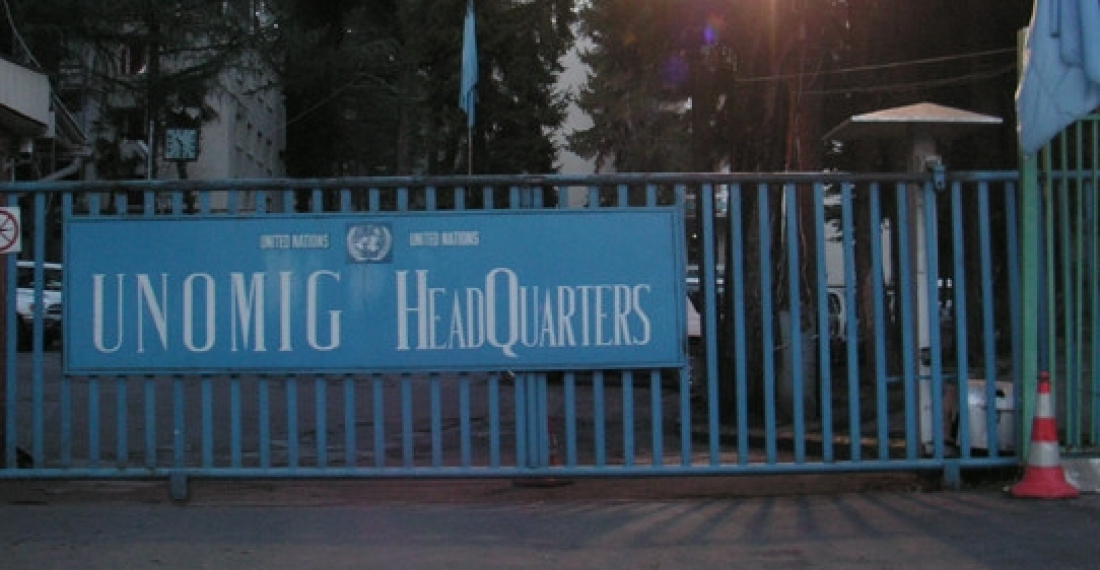As Armenia and Azerbaijan come closer to launching bilateral negotiations over the normalisation of relations, many issues wait for a solution. Currently, the hottest debates are underway regarding the future status of Nagorno Karabakh and the legal modalities of the transit for Armenian and Azerbaijani goods passing each other territories. The war in Ukraine and the complete collapse of Russia – West relations added geopolitical components to the equilibrium. Do we have EU – Russia competition over the mediation process? Are there any disagreements between Brussels and Moscow on promoting lasting peace and stability in the South Caucasus? All these issues are worthy of being discussed and debated. Recently the Armenian government made a profound step towards the peaceful resolution of the Nagorno Karabakh conflict. For the first time since 1988, Armenia has declared that the key issues are the rights and freedoms of Armenians living in Nagorno Karabakh, while the region's status should be derived from arrangements to secure those rights and freedoms.
As of now, we do not see reciprocity from the Azerbaijani government. At least publicly, the Azerbaijani leadership continues to push its line – Nagorno Karabakh does not exist, and Azerbaijan will never discuss the issue of any status for Nagorno Karabakh, either with Armenia or anyone else. Though it is not excluded, that the Azerbaijani leadership sends other messages during the closed-door negotiations, hinting at their readiness to provide significant autonomy for Nagorno Karabakh.
Meanwhile, Russian troops remain in Nagorno Karabakh, and according to the Russian expert community, the Kremlin has no intention to withdraw them after November 2025. This may create tensions in Azerbaijan – Russia relations, as it is Baku that should decide whether to extend the Russian peacekeepers' mandate in May 2025. Russia and Azerbaijan may discuss different ways to extend the deployment of the Russian peacekeepers, including a bilateral agreement on establishing a Russian military base in Azerbaijan. However, the de jure establishment of a Russian military base in Azerbaijan will contradict the Azerbaijani position of non-alignment. It will not be welcomed by the US and probably by Turkey. The US refuses to call Russian troops in Nagorno Karabakh peacekeepers, arguing that peacekeepers should have an international mandate. Americans have not called Russian troops in Nagorno Karabakh "occupational" yet, but they may do that soon. The US believes that Russian troops should leave Nagorno Karabakh, and if necessary, a new mission should be launched with an appropriate international mandate. The withdrawal of Russian troops from Nagorno Karabakh is a part of the US strategy to weaken Russian influence in the Post-Soviet space.
Meanwhile, Russia could also be interested in having an international mandate for its troops in Nagorno Karabakh. This arrangement will allow Russia not to depend on the whims of the Azerbaijani leadership whenever an extension of Russian deployment is due. However, the Kremlin believes that the West pushes forward the issue of an international mandate to use it as a pretext to kick out Russian troops from Nagorno Karabakh.
Thus, we have an interesting situation. All actors understand that a foreign military presence in Nagorno-Karabakh is necessary to prevent new hostilities. Russia will not remove its troops from the region but would like to have some international mandate. The US is not satisfied to see Russian troops in Nagorno Karabakh and would like to replace them with other forces under an international mandate. Azerbaijan would like to see Russian troops leaving Nagorno Karabakh but understands that this will not happen. Probably from the Azerbaijani point of view, supplementing Russian troops with forces of other countries under an international mandate could be a solution.
SIGN UP FOR OUR KARABAKH CONCISE NEWSLETTER!
In this context, the experience of the United Nations Observer Mission in Georgia may be helpful. On 24 August 1993, the UN Security Council, by resolution 858, decided to establish the United Nations Observer Mission in Georgia (UNOMIG), comprising up to 88 military observers, plus minimal civilian support staff, to verify compliance with the ceasefire agreement signed between sides. On 14 May 1994, the Georgian and Abkhaz sides signed a new Agreement on a Ceasefire and Separation of Forces in Moscow. The parties agreed to deploy a peacekeeping force of the Commonwealth of Independent States (CIS) to monitor compliance with the Agreement, with UNOMIG monitoring the implementation of the Agreement and observing the operation of the CIS forces.
On 27 July 1994, following the recommendation by the Secretary-General, the Security Council expanded the mandate of UNOMIG accordingly and increased its strength to up to 136 military observers. In reality, the CIS peacekeeping force comprised only Russians, while military observers represented different countries. The UN Security Council resolutions extended the mandate of UNOMIG every six months until the August 2008 Russia – Georgia war. Thus, UNOMIG was an interesting experience to provide an international mandate to Russian peacekeepers deployed in Abkhazia while having additional presence in the region through the deployment of military observers. As Armenia and Azerbaijan prepare to launch negotiations over the normalization of relations and the Russia – West confrontation spreads all over the former Soviet space, the UNOMIG model may help satisfy all sides. Russia will continue to keep its troops in Nagorno Karabakh with an international mandate, while the West will re-establish itself in the region through the deployment of military observers. This solution may remove the Nagorno Karabakh conflict from the list of Russia – West geopolitical rivalries, which will benefit the region.



